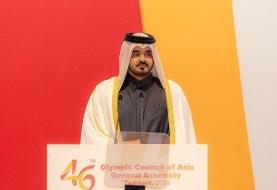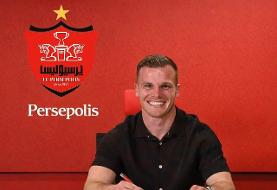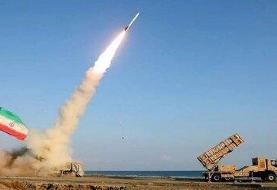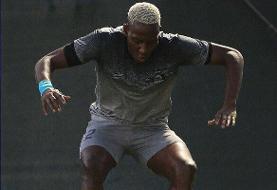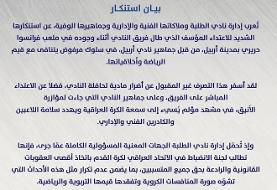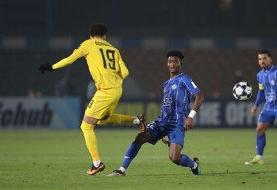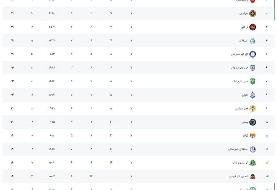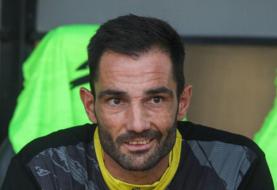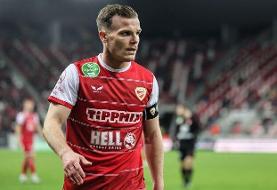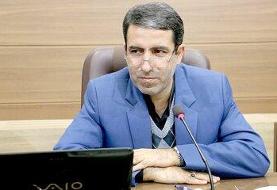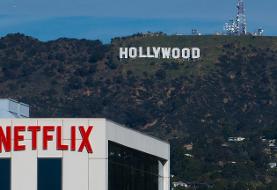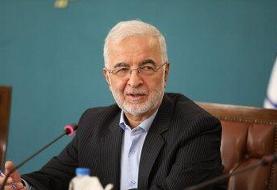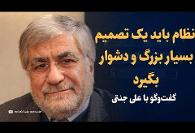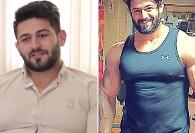سالار کمانگر
اخبار و مقالات
 ایرانیان آمریکا همسنگر اوباما در نبرد با لابی عربستان و ...
ایرانیان آمریکا همسنگر اوباما در نبرد با لابی عربستان و ...
 یک ایرانی-الاصل مدیر ارشد عملیاتی توییتر شد
یک ایرانی-الاصل مدیر ارشد عملیاتی توییتر شد
 مدیر جدید فیسبوک: نوازنده کمانچه، عاشق فرهنگ ایران و ...
مدیر جدید فیسبوک: نوازنده کمانچه، عاشق فرهنگ ایران و ...
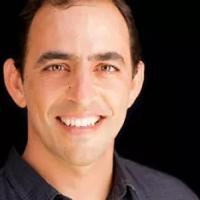 سالار کمانگر مدیر عامل گوگل و یوتیوب کیست ؟ (+عکس)
سالار کمانگر مدیر عامل گوگل و یوتیوب کیست ؟ (+عکس)
 مدیر ایرانی یوتیوب برکنار شد
مدیر ایرانی یوتیوب برکنار شد

سالار کمانگر، متولد ۱۳۵۵ در تهران ، یک جوان آمریکایی ایرانیتبار است که در رشته بیولوژی در دانشگاه استنفورد درس خوانده و پس ار فارغ التحصیلی در سن ۲۲ سالگی به گوگل ملحق شده و بعد از گذشت ۷ سال به یکی از موفقترین و اصلیترین مدیران این شرکت تبدیل گردیده و هم اکنون سمت مدیر عاملی یوتیوب را بر عهده دارد. سالار که يكي از قديمي ترين و در حین حال از جوانترین كارمندان گوگل است، معاونت بخش برنامههاي تحت وب گوگل نظير جيميل، اوركات، تقويم گوگل، بلاگر و پيكاسا را بر عهده داشته و سرویس موفق تبلیغات گوگل که همه آن را با نام Google Adwords میشناسند نیز از ابداعات وی میباشد که سهم عمده ای در پیشرفت و موفقیت وی و همچنین توسعه گوگل داشته است. سالار کمانگر در سال ۲۰۱۰ سمت مدیر عاملی یوتیوب را پس از کناره گیری چاد هورلی - مدير و يكي از بنيانگذاران سايت مشهور يوتيوب - بر عهده گرفت. او همچنین مدیر پروژه Google TV که جزو زیرمجموعه Youtube قرار گرفته است، می باشد.
مجله معروف Businessweek مصاحبهای را با این جوان موفق ایرانی داشته است که در ادامه میخوانیم.
- عجیب است که در رشته تحصیلیتان فعالیت ندارید، چگونه یک متخصص بیولوژی سر از IT درآورده است؟ تا زمانی که وارد کاری نشوید نمیتوانید در مورد آن قضاوت درستی داشته باشید، من هم بعد از این که مدتی به تماشای کاری که پزشکان انجام میدهند، مشغول شدم، فهمیدم که برای این رشته مناسب نیستم و بهتر است در شاخهای فعالیت داشته باشم که بتواند به من انرژی دهد. کار در زمینه IT، حرفهای است که به صورت روزانه هیجان و انگیزه لازم را برای من فراهم میکند.
- با این حساب رشته تحصیلی ربطی به کاری که ممکن است در آینده انجام دهید، ندارد؟ به نظر من هر فرد میتواند بعد از تمام شدن تحصیلاتش کار مناسبی را پیدا کند فقط نباید از ابتدا مشغله این را داشته باشد که یک کار عالی در یک شرکت معتبر داشته باشد، زیرا شما شانس بسیار کمی دارید که بتوانید آینده کاریتان را پیشبینی کنید و باید تلاش کرد تا به جای این که دنبال یک موقعیت عالی باشید، یک کار مناسب با تواناییهایتان به دست آورده و تواناییهایتان را در آن زمینه نشان دهید. این کار باعث میشود آینده کاری خوبی را برای خود در هر رشتهای که میتوانید، رقم بزنید. این موضوع برای من صادق بود و توانستم خیلی سریع نوع کاری را که در آن مهارت دارم تشخیص دهم و به سرعت در آن رشد کنم.
- شما تا چند سال گذشته، جوانترین مدیر شرکت گوگل بودید، از این موضوع چه حسی دارید؟ من به این موضوع زیاد فکر نمیکنم زیرا من فارغالتحصیل رشته مرتبط با زمینه کاریام نبودهام و به همین خاطر مجبور به گذراندن مراحل و سلسله مراتبی شدم که در مورد دیگر افراد به صورت خودکار انجام میگرفت. من توان فکری کار با منابع یک شرکت بزرگ را داشتم.
- به چه بخشی از کارتان بیشتر از همه علاقه دارید؟ من گفتگو را بسیار دوست دارم. در گوگل ما میتوانیم ساعتها با افرادی خلاق در یک اتاق بنشینیم و به گفتگو و رد و بدل کردن ایدههایمان بپردازیم. من این کار را بیشتر از هر کار دیگری دوست دارم.

Salar Kamangar (born 1977, Tehran, Iran) is CEO of YouTube and Senior Vice President of Video at Google. He was named CEO of YouTube, a Google subsidiary, after the resignation of YouTube co-founder Chad Hurley in October 2010. Salar was originally hired as Google's ninth employee in 1999, when he was a 22-year-old Stanford graduate with a degree in biology.
Beginning in 2001, he helped design Google's automated AdWords text advertising sales and placement system, which uses instant computerized auctions and algorithms to determine ad rates and placement, and quickly emerged as the cornerstone of Google's cash flow. A 2006 article in Business Week summarized his contribution succinctly: "It's safe to say that without Kamangar, Google wouldn't be Google". Five names are listed in three different configurations as co-inventors on the first four patents for AdWords, but Kamangar is the only name credited on all four of those patents.
Beginning in the mid-2000s, Kamangar oversaw the Blogger, Calendar, Checkout, Docs, Gmail, Google TV, Orkut, Picasa, Reader, Spreadsheets, Talk, Video, and YouTube platforms. YouTube has occupied most of his attention since about 2008, and he was intimately involved in the video site's day-to-day operation as it added more advertising and came closer to profitability. Technologically, he oversaw development of YouTube's system for automated flagging of corporate-content videos to address copyright violation issues, and the "Insight" system that allows content providers to track the demographics and geographics of video viewers.

Some entry-level employees get all the breaks. Others make their own luck. Salar Kamangar did both. He joined Google Inc. (GOOG ) after graduating from Stanford University in 1999, five years before the initial public offering, and his meteoric rise mirrored the company's own comet-like trajectory. In seven years, Kamangar has gone from newbie to key player in one of the most remarkable corporate success stories of the decade. Among his accomplishments: writing the first business plan, becoming a founding member of the Google product team, and leading the engineering team that launched AdWords, Google's proprietary method for tailoring Web ads to search terms. Google's youngest vice-president talked with BusinessWeek's John DeBruicker about what makes Google one of the best places for entry-level employees.
-You were a biological sciences major. How did you get into technology? When I first [got] to school, I was passionate about the idea of being a doctor until I spent some time watching doctors working with patients. I was then passionate about the idea of being a scientist. But I realized the day-to-day wasn't exciting. Then, after spending two weeks part-time at Google, I found I was energized by the tasks involved in the job. The lesson learned was to make sure you're excited and passionate about the day-to-day and not just the idea of the job.
-What's it like being the youngest vice-president? I don't think about the "youngest" part. We have a startup mentality with the resources of a larger company. I think that's very important. If you're a college grad going into your [first] job, you don't want many, many levels of hierarchy [where] you feel like even if you have a lot of passion and energy it doesn't get channeled effectively.
-Would your experience have been different had you joined Google later? I was able to progress more rapidly because I got started early. A new employee [today] wouldn't have the same experience I did. Relative to nonstartups, Google is very much a place where you can quickly make a big difference and be noticed.
-What is your favorite part of the job? It's fun to be in a room with a bunch of creative people and be as contrarian and as outside-the-box as possible, while talking about how to take an existing product or business and make it better.
-What would your advice be to a recent grad beginning the job hunt? After finishing your education, don't worry about finding the perfect role at the perfect company, because odds are low that you'll be able to predict anything. Instead try to find the perfect industry -- you'll be in a much better position to identify, and end up in, the perfect company. It's usually futile to try to predict the next Google. I lucked out, but I was able to identify the kind of industry that would matter and grow the fastest.












